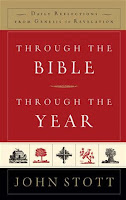"A Special Possession": The Nature of Israel's Covenant with God
Exodus represents Israel's origins as a national entity. Through slavery (deconstruction) and deliverance-covenant-worship (reconstruction), we behold the formation of a corporate identity. Healthy identity accounts for major influences and in Exodus we see the influence of the "founding fathers" as well as Egypt. Egypt cannot be entirely expunged or sublimated. It must be converted and redeemed. As ML King once told his congregation "it took the Lord forty days to get Israel out of Egypt but it took the Lord forty years to get Egypt out of them."
There are many ways to approach the Exodus, the foundational act of deliverance in the Old Testament. It is common (and accurate) to view it as Israel's understanding of empire and the genesis of its own unique political science. Israel does not ascribe ultimate loyalty to the state and its king, something required in all ancient empires. The word of the king is not absolute in Israel; only the word of the LORD God. In Israel, even the king stands under the covenant and its stipulations - thus Nathan does not lose his life when he rebukes David for his adultery with Bathsheba. The exodus, the liberty it achieves, the covenant stipulations which preserve that freedom and the sacrificial system as a mechanism for covenant repair when its violated, together constitute a fundamental break with the ancient understanding of the state. In the ancient world the state was all inclusive of one's loyalty and all demanding of one's life. In Israel, the LORD God alone has the role of sovereign.
So is Israel simply switching poisons - substituting a totalitarian state for a totalitarian god? Good question. The answer all hangs on the nature of the LORD God and the kind of relationship He enters with Israel. My short answer is no, though it will take much of the Old Testament to fully support this answer. Part of our difficulty is our penchant to import pagan (or sub-biblical) definitions of sovereignty into the biblical account instead of letting the Bible teach us to see sovereignty in a new light - in light of God's character and deepest intentions for the world.
A good way to enter into this conversation is to understand Exodus 19, which functions as the theological rationale for the covenant stipulations commonly known as the Ten Commandments. The Ten Commandments (Exodus 20) will be the subject of next week's post, so it is important to frame them as biblically as possible. Exodus 1-19 is important context for understanding Exodus 20. Exodus 19 parallels Exodus 3; both are calling stories. As Moses was called through the epiphany of the burning bush, Israel is called through the epiphany of the burning mountain. I refer to these calling stories as "epiphanies of recruitment." In them we find God reaching out to the human race in an ecstatic act of self-revelation. In part two, we will look more closely at the vehicles of that revelation: a poem, key words, and a pun.

No comments:
Post a Comment